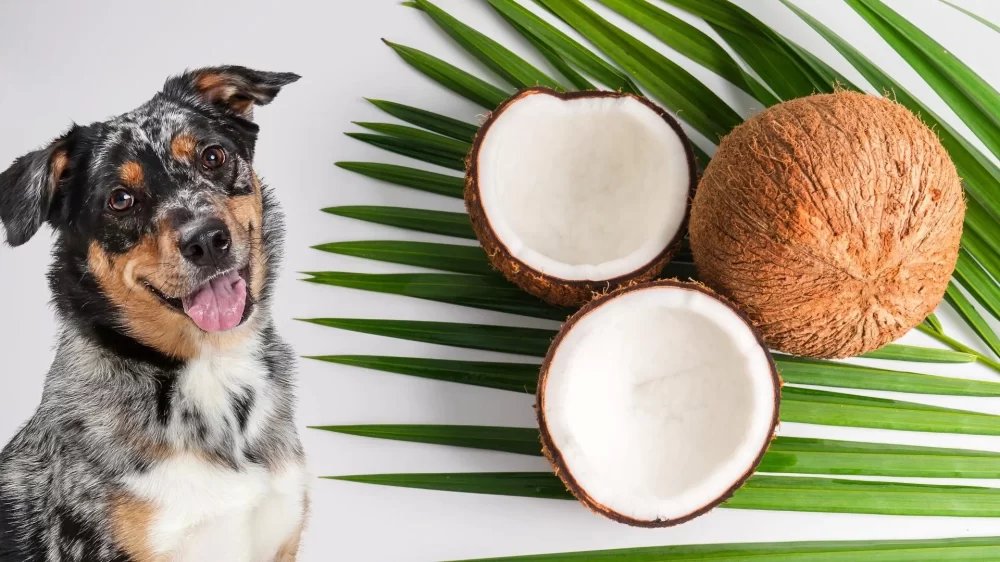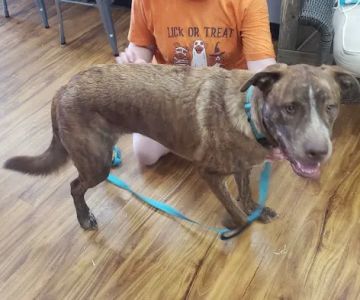- Can Dogs Eat Dried Coconut?
- Health Benefits of Coconut for Dogs
- Potential Risks of Coconut for Dogs
- How to Feed Coconut to Dogs Safely
- Expert Advice on Feeding Coconut to Pets
Can Dogs Eat Dried Coconut?
Coconut is a tropical fruit known for its sweet flavor and rich texture, and it's often found in many human foods. As pet owners, you may wonder whether it's safe to share this delicious treat with your dog. The short answer is yes—dogs can eat dried coconut in moderation. However, it's important to consider how much coconut you are feeding your dog and ensure it’s prepared correctly.
Dried coconut can be a healthy treat for dogs when given in small quantities. It is packed with healthy fats, vitamins, and fiber, which can benefit your dog's health. But not all forms of coconut are suitable for pets. Fresh coconut meat or coconut flakes are safer options compared to products with added sugar or preservatives, which can be harmful to your pet.
Health Benefits of Coconut for Dogs
There are several health benefits that coconut can offer to your furry friend, provided it is consumed in moderation:
1. Rich Source of Healthy Fats
Coconut contains medium-chain triglycerides (MCTs), which are healthy fats that can provide energy for your dog. MCTs are also known to support brain function and may help in the prevention of certain cognitive issues in older dogs.
2. Supports Digestive Health
The fiber content in coconut can help promote healthy digestion in dogs. It can regulate bowel movements and prevent constipation, ensuring that your dog stays comfortable.
3. Antioxidant Properties
Coconut is rich in antioxidants, which can help fight off free radicals in your dog’s body. These antioxidants support the immune system, reducing the risk of diseases and infections.
4. Skin and Coat Health
Coconut oil and dried coconut can benefit your dog’s skin and coat. The healthy fats in coconut help maintain a shiny, smooth coat, and can even be applied topically to treat skin irritations and dry spots.
Potential Risks of Coconut for Dogs
While coconut can be a healthy addition to your dog’s diet, there are some risks to consider, especially if consumed in excess.
1. High in Calories
Coconut is calorie-dense, and feeding your dog too much can contribute to weight gain. This is particularly important for dogs with sedentary lifestyles or those that are already overweight.
2. Coconut Allergies
Some dogs may be allergic to coconut. If you're feeding coconut to your dog for the first time, start with a small amount and monitor for any signs of an allergic reaction, such as itching, swelling, or digestive upset.
3. Risk of Choking
Dried coconut can sometimes be a choking hazard, particularly for smaller dogs or those who tend to gulp their food without chewing properly. Always break dried coconut into small, manageable pieces before feeding it to your dog.
How to Feed Coconut to Dogs Safely
If you’ve decided to give your dog a taste of coconut, here are a few tips on how to do so safely:
1. Start Small
Introduce coconut to your dog’s diet gradually. Start with a small amount and monitor how your dog reacts. If your dog shows no signs of digestive issues, you can gradually increase the portion size.
2. Avoid Sweetened Coconut
Always opt for unsweetened dried coconut. Coconut products with added sugar or preservatives can be harmful to your pet and should be avoided at all costs.
3. Serve It in Moderation
Remember, coconut should be considered a treat and not a regular part of your dog’s diet. Keep the portion size small to avoid any potential health issues like weight gain or upset stomach.
4. Use Coconut Oil for Added Benefits
If you're not sure about feeding dried coconut, you can also use coconut oil, which offers many of the same health benefits. Just a small amount can be added to your dog’s food or applied directly to their skin to promote health from the inside out.
Expert Advice on Feeding Coconut to Pets
When in doubt, always consult with your veterinarian before introducing new foods into your dog's diet. Veterinarians can provide personalized advice based on your dog’s breed, age, size, and health status. If your dog has any underlying conditions like pancreatitis or diabetes, feeding coconut may not be the best option.
At Hidden Brook Veterinary, we offer expert guidance on pet nutrition and can help you determine the best diet plan for your dog. Whether you need advice on safe treats or specialized food for specific health conditions, our team is here to help you make the best choices for your pet's well-being.












